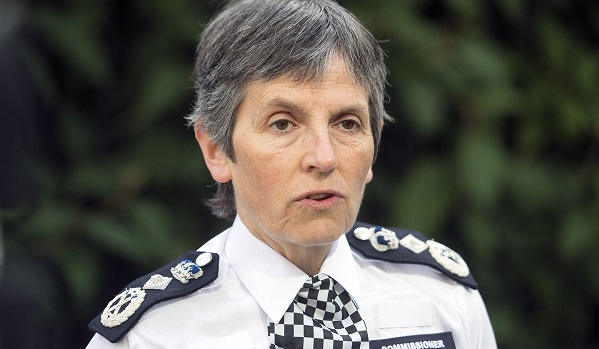MPS issues go beyond 'a few bad apples' says acting head
The acting head of the Metropolitan Police Service (MPS) has called for a change in dismissal procedures to make it easier for chief constables to remove errant officers from their forces.
Speaking at his first appearance before the Home Affairs Select Committee, Sir Stephen House said senior officers were sometimes prevented from sacking colleagues for misconduct immediately because of lengthy criminal inquiries.
“One of the classic problems for us is an officer who has carried out an action which is misconduct but looks as if it may also be criminal which will then get referred to the CPS (Crown Prosecution Service),” he said.
“Investigations can go on in parallel, sometimes it is easier if the criminal investigation goes first. There are times when probably out of frustration I think to myself ‘I’d rather sack this person now rather than wait 18 months for them to go to court, possibly get found not guilty and then we have to go through a misconduct process’.”
Sir Stephen suggested that in less serious criminal cases, it would be better for public trust and the public purse if the MPS’s misconduct procedures could take precedence. “We would get rid of them quickly and justice would be seen to be done,” he said.
Former commissioner Dame Cressida Dick resigned from her post earlier this year after losing the confidence of the Mayor of London. Her departure came after a number of scandals – including the murder of Sarah Everard by a serving officer, Wayne Couzens. Other damaging incidents included offensive messages exchanged by a team at Charing Cross and the strip-search of a black teenage girl at school.
Inquiries have identified a lack of supervision in the parliamentary and diplomatic protection unit where Couzens served when he carried out his crimes, Sir Stephen said, and a series of racist and sexist social media postings by members of the unit were disclosed last month.
One sent an edited picture showing George Floyd in his final moments, alongside the caption “Pink Floyd”. Another doctored photo featured the critically injured BLM activist Sasha Johnson, in a T-shirt that read ‘Black Lives Splatter”.
Sir Stephen said the force has launched a root-and-branch inquiry into the unit’s culture and realised that supervising officers had little to do with the rank and file.
Asked whether the issue of misconduct involved “just a few people”, he replied: “People have talked about a few bad apples, quite clearly that’s not the situation at all, it’s not a few bad apples.
“You can’t simply say that Wayne Couzens and a couple of other people have done something wrong – that’s been the spearhead of the problem, I would suggest, but there is a wider issue within the organisation which we acknowledge and we are dealing with.”
“There is a significant campaign within the organisation to deal with this completely unacceptable behaviour, to root it out and to exit those people who are exhibiting that behaviour from the organisation as fast as possible and in the right way.”
“Supervisors can set tone and set attitudes and deal with very low level poor behaviour early on. We find in our review of parliamentary and diplomatic protection that the supervisory levels are too low. That the mode of working is they don’t see their supervisors enough and the supervisors don’t know the officers well enough simply because there aren’t enough of them,” he said.
Sir Stephen admitted that he was now “less confident” that the MPS would be able to meet its recruitment targets under the uplift program. “We need to recruit just over 4,000 officers in the next 12 months. That means we need around about 40,000 applications in the next 12 months because we take roughly one in ten of the people who apply to us.”
A strategic review of policing last month suggested that officers should have to hold licences that would be renewed every five years. The proposal was firmly rejected by the Police Federation of England and Wales but Sir Stephen said he would “not be opposed” to such a scheme, likening it to that used for doctors. “We would certainly expect doctors to know what the recent developments are, what medication et cetera, what treatments, we should expect the same of police officers, and there is constant change,” he said.







